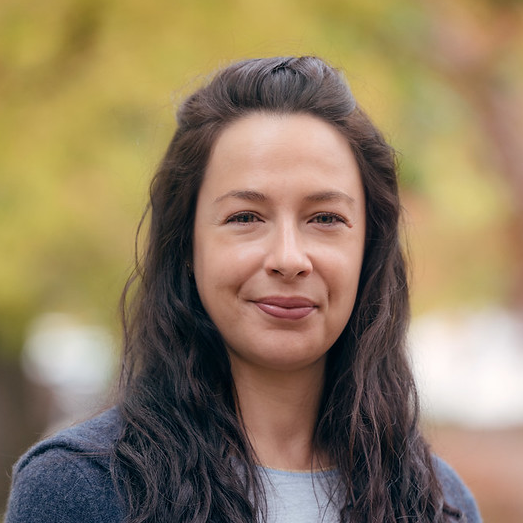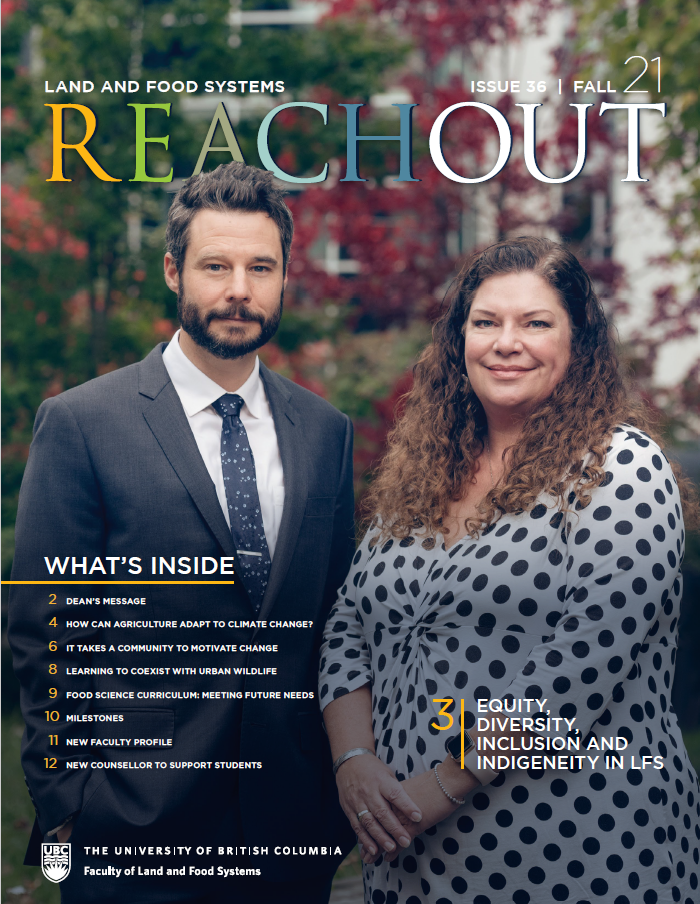New Faculty Profile: Tabitha Robin Martens

Tabitha Robin Martens joined the Faculty in September 2021 as an Assistant Professor in the Applied Biology program. She has her BSc in Environmental Studies from the University of Winnipeg and MEnv from the University of Manitoba, where she looked at dozens of Indigenous food sovereignty initiatives in Western Canada.
She earned her PhD in Interdisciplinary Studies from the University of Manitoba. Her research focus looked at how food as a discipline can operationalize the Truth and Reconciliation Commission’s 94 Calls to Action, and the Missing and Murdered Indigenous Women and Girls Inquiry Report’s 231 Calls to Justice; how Indigenous knowledge can be used as food literacy; and the reclamation of Indigenous seed knowledge.
Historically, research on Indigenous food systems has been viewed from a model that centres inequities and discrepancies. This model, Martens explains, does not consider the incredible richness and complexities of Indigenous food practices.
“Indigenous food sovereignty does not look at Indigenous relations to the land from a deficit-based-model. It’s a new, but a historical concept at the same time – it’s newer to literature and academic circles, but as a living practice, it’s always existed in our communities,” explains Martens. “I have yet to visit an Indigenous community in Canada where someone was not hunting, fishing, gathering, picking medicines, speaking the language, or conducting ceremonies.”
After researching Indigenous food sovereignty initiatives for her Masters, Martens wanted to look at food from a more spiritual lens: understanding what food means to identity, social arrangements and understandings, social wellbeing, and in ceremony. For her dissertation, Martens looked at how Cree Elders incorporate food into their helping and healing practices, which will inform much of her future research.
“What I realized as I wrote my dissertation is that the Elders were giving me a roadmap for rebuilding a traditional food system,” says Martens. “It feels like an incredible gift and responsibility, so my interests moving forward are really thinking about that roadmap – what does it look like and how do we get there?”
Part of her research in rebuilding a traditional food system is looking at Indigenous knowledges as food literacy.
“We think of the food system as being the soil, the water, the microbes, the plants and animals, the air and the sun, but an Indigenous food system is rooted in ancestral knowledge systems,” explains Martens. “One of the projects I’m starting to explore is how Indigenous knowledges can be used for food and nutrition literacy: What do our ancestral teachings tell us? What do the Elders tell us? What does the language tell us about how to eat? And how can we bring those to the forefront of our food systems?”
An example of this is the Cree word for raspberry which translates to “eat this for strong bones.” All berries are named this way, Martens explains, but in residential schools and through the imposition of the colonial food system, this knowledge was meant to be erased.
In the classroom environment, she is interested in helping students unlearn and unpack what they have been taught: “That’s such an incredible moment for me – when we can start to break apart the ways they’ve learned what they know or think they know, or how they understand Indigenous people or colonialism.”
Martens is also looking forward to learning from students, especially in a new territory: “It feels strange to come from somewhere that you’ve been all your life and you know the name of all the plants and animals, the pattern of the sky and the seasons. There’s so much that can be learned by being in good relation to the land.”
Tagged with: 2021, Applied Biology, Equity Diversity Inclusion and Indigeneity, Indigenous
